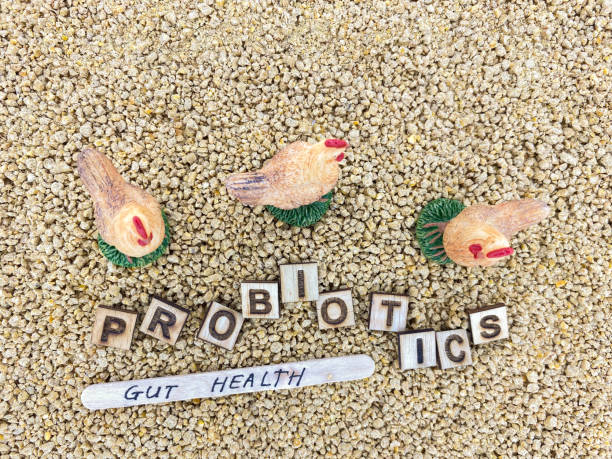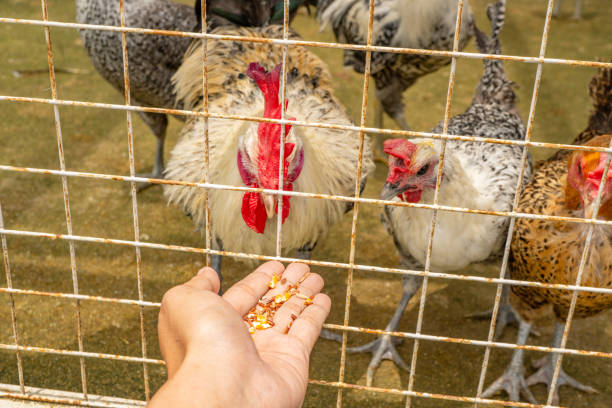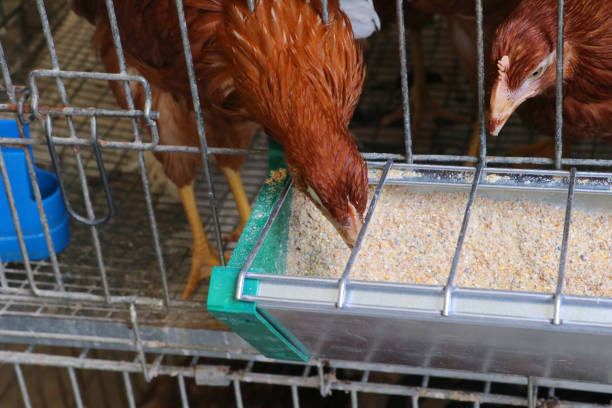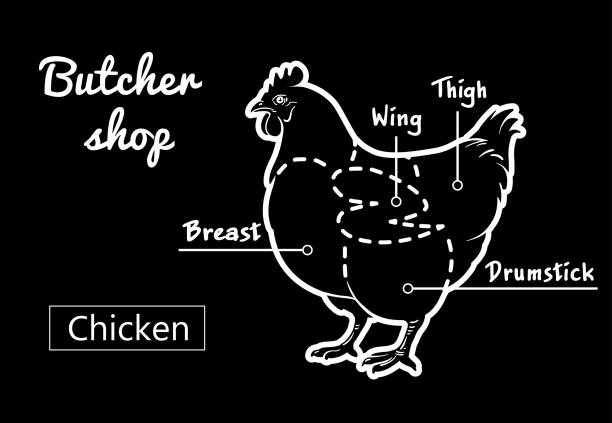Introduction
Chickens’ health largely depends on the diet they are fed on, and to maximize production of eggs as well as proper health of the chicken this research sought to determine the kind of diet that is best suited for the chickens. Chicken feeding is more than simply ‘putting grain into a feeder’ there are several ways that can be adopted depending with the age and type of poultry. Here, you will get to discover best chicken feed approach which can be greatly beneficial in the improvement of the birds’ health and productivity.
Understanding Chicken Nutritional Needs
To figure out an effective taking care of methodology, it’s significant to initially grasp the healthful necessities of chickens. Chickens require a reasonable eating regimen that incorporates:
- Proteins: Fundamental for development, egg creation, and in general wellbeing. Chickens need protein sources like soybean dinner, fish feast, or high-protein grains.
- Carbohydrates: Give the fundamental energy to everyday exercises. Normal sources incorporate corn, wheat, and grain.
- Vitamins and Minerals: Basic for bone turn of events, resistant capability, and egg shell quality. Vitamin D, calcium, and phosphorus are especially significant.
- Fats: Offer energy and backing the ingestion of fat-solvent nutrients.
Recommended Chicken Feed

1. Chick Starter Feed
- Description: A high-protein formula for young chicks (0-6 weeks).
- Protein Content: 20-24%
- Features: Nutrient-rich with essential vitamins and minerals to promote healthy growth and immunity.
- Recommended Brands:
- Purina Chick Starter
- Manna Pro Chick Starter
- Nutrena Start & Grow
2. Grower Feed
- Description: For chickens transitioning from starter feed (6-14 weeks).
- Protein Content: 16-20%
- Features: Balances protein and calorie content for optimal growth.
- Recommended Brands:
- Purina Grower Crumbles
- Manna Pro Grower
- Country Feeds Grower
3. Layer Feed
- Description: Formulated for laying hens (16 weeks and older).
- Protein Content: 16-18%
- Features: Enriched with calcium, phosphorus, and vitamins for proper egg production and strong eggshells.
- Recommended Brands:
- Purina Layena
- Manna Pro Layer Pellets
- DuMor Layer Pellets
4. Broiler Feed
- Description: Intended for meat chickens that are raised for meat production.
- Protein Content: 20-24% (for starter), then reduced for grower stage.
- Features: Encourages rapid and healthy growth.
- Recommended Brands:
- Nutrena Broiler Starter
- Purina Broiler Finisher
- Manna Pro Broiler Feed
5. Flock Raiser Feed
- Description: A versatile feed suitable for a mixed flock (chickens, ducks, etc.).
- Protein Content: 15-20%
- Features: Can be fed to all ages, promotes healthy growth and egg production.
- Recommended Brands:
- Purina Flock Raiser
- Manna Pro Flock Raiser Crumbles
6. Organic and Non-GMO Options
- Description: Feed made from organic ingredients and without genetically modified organisms.
- Features: Higher quality feed options available for health-conscious producers.
- Recommended Brands:
- Nature’s Best Organic Layer Feed
- Blue Seal Organic Chick Starter
- Scratch and Peck Feeds
Additional Tips:
- Grit and Calcium: For layers, provide free-choice crushed oyster shells for calcium and grit for digestion.
- Fresh Water: Always provide clean and fresh water alongside feed.
- Avoid Kitchen Scraps: Limit treats and scraps to avoid nutritional imbalances. Keep them to no more than 10% of the diet.
My Amazing Personal Experience

Entering into the world of chicken feed has been one of the most exciting things for me in the last three years of my practice. Well, it started from my decision to rear birds at home, particularly chickens for purpose of getting fresh eggs.
Wanting to know more about nutrition of my chickens, I began to read about what can be considered as chicken’s balanced diet. I tried to change diets varying between commercially produced pellets to ground corn and beans and oats. In the process, I discovered what protein, vitamins and minerals do for them and their eggs. It was very fulfilling when I got to compare how my chickens fared on different diets so as to learn that diet has a direct effect on the health of the birds.
Crafting the Perfect Feed Mix
1. Customizing Feed Based on Age and Purpose
The feeding should also depend on the age of the chickens and the use that you want to put the chickens to in the future. For example, the laying hens will require feed that contains comparatively higher amount of calcium and protein to enhance production of eggs. On the other hand, broilers need more energy in order to gain weight more quickly andMuscat
2. Incorporating Natural Supplements
Chicken boosters; There are a number of artificial additives that can be given to the poultry in the feed which help in improving their health a notch higher. Calcium for thicker and stronger egg shell to be obtained from the oyster shells while apple cider VOICE for digestive health and enhanced immune system.
3. Balancing Commercial and Homemade Feed
That is why one has to study the feed composition in relation to the time of the year and change it accordingly to the bird’s needs. Because during winter their body temperatures drop and they have to spend a lot of energy warming their bodies and therefore we should feed the chickens with more carbohydrates.
Feeding Practices for Optimal Health
1. Scheduled Feeding

Taking care of your chickens at a predetermined opportunity in a day likewise proves to be useful for forestalling the disturbance of a timetable in the midst of their day to day exercises. To the extent that the recurrence of taking care of the chickens, taking care of chickens two times in a day, in the first part of the day and in the evening is encouraged.
2. Providing Clean, Fresh Water
Water is a crucial component of your chickens’ diet. Always ensure they have access to clean, fresh water. We suggest using automatic waterers to maintain a consistent water supply and prevent contamination.
3. Free-Range and Pasture Access
Evaluations done on the effects of free ranging or having access to pasture found out that chickens health would improve a lot. Besides, feeding on insects and plants ensure that they get an extra meal to balance their main diet while at the same time the foragingexercise is one way through which they can enhance their well-being through, natural behaviors.
4. Monitoring Feed Quality
Daily check the feed for signs of spoilage and this may include growth of mold or signs of pests. To reduce the chances of feed going bad, one should store feed in a cool dry place free from insects and should be stored in airtight containers.
Addressing Common Feeding Challenges
1. Preventing Overfeeding
Feeding the birds more than they should eat may result in obesity which is a big no for fertility especially in egg laying birds. Therefore, one should quantify feed portions in terms of the number of chickens reared as well as their level of activity.
2. Managing Pecking Order Issues
Chickens establish a social hierarchy that can affect feeding time. Lower-ranked chickens may be pushed away from the feed. To combat this, we recommend placing multiple feeders in different locations to ensure all chickens have access to food.
3. Seasonal Adjustments
That is why one has to alter the feed composition based on the time of the year to meet the needs of the birds. During winter, chickens use more energy in order to warm their bodies and for this reason we recommend that we should feed the chickens with more carbohydrates.
Conclusion
Follow the above said chicken feed strategies and ideas and you will be in a position to feed your chickens with the best foods that they need for their good health. A full-fed chicken is healthy and productive,and as a result the chickens produce more eggs, grows at faster rates, and are generally happier flocks. Like most practices that involves farming, time, effort, attention and flexibility gives the best shot.
By practicing these approaches you’ll be ensuring that your chickens are healthy and happy thus producing high performance and productivity.
FAQs on Proven Chicken Feed Strategies for Healthier Chickens
1. What are the essential nutrients that chickens need in their diet?
Chickens require a balanced diet that includes protein, carbohydrates, fats, vitamins, and minerals. Key nutrients include:
- Proteins: For growth and egg production (sources: soybeans, fish meal, etc.)
- Carbohydrates: For energy (sources: grains like corn and wheat)
- Fats: For energy and to help absorb vitamins (sources: vegetable oils)
- Vitamins: Such as A, D, E, and B-complex for overall health
- Minerals: Such as calcium for eggshell strength and phosphorus for bone health
2. How much feed should I provide to my chickens each day?
In general, adult hens require 0. 25 to 0. 33 pounds of feed per day, but meat birds need more feed. The quantity of feed must be adequate based on many birds and their size but must also have fresh water available all the time.
3. Can I formulate my own chicken feed?
Yes, an individual is allowed to mix his own chicken feeds but should consider the quality and nutritional value of the feeds being used. It is recommended that a farmer should use a good feed formulation guide and in the process of doing this the farmer might seek the services of a poultry nutritionist.
4. What are the benefits of feeding chickens whole grains?
Other foods for example whole grain give energy and improved digestion. It is also worth noting that often they can be filled with useful nutrients that are needed for the saturation of chickens and their further stall-keeping. Whole grains can also stimulate the latent tendency of the birds to peck and forage, and therefore have a healthier stock.
5. Is it safe to feed chickens kitchen scraps?
Most kitchen wastes are good for chickens, but there are some foods that are dangerous for chickens and should therefore not be used, including onions, chocolates, avocadoes among others. Scraps should also be offered in moderation since giving this food could lead to consumption of foods that the dog would not have ordinarily taken in large amount.
6. What role do supplements play in chicken feed?
They are essential when chickens are being fed and there are certain dietary needs that cannot be met by the standard feed. Some include calcium supplements for layer hens, probiotics that boost their gut, and omega-3 fatty acids that improve on the quality of the layings eggs.
7. How often should I change or adjust my chickens’ feed?
8. What is the difference between layer feed and broiler feed?
Layer feed is specifically formulated for hens that produce eggs, usually containing higher calcium levels and different protein ratios to support egg production. Broiler feed is designed for meat birds, focusing on higher protein content to support rapid growth.



